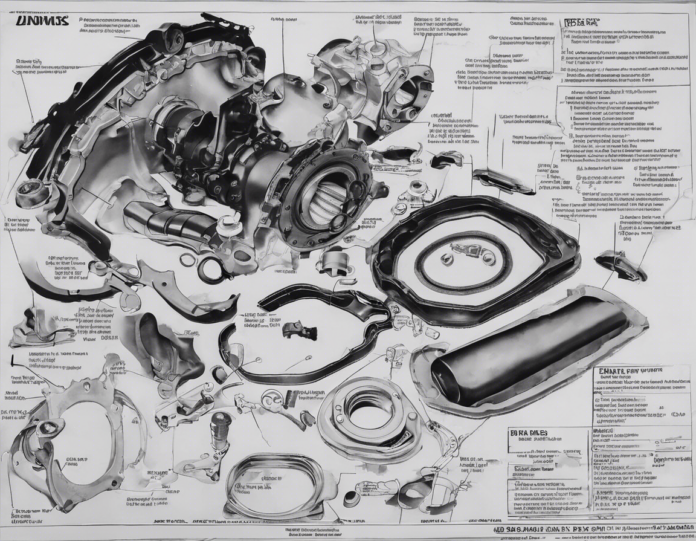Understanding Rear Main Seal Leaks in Your Vehicle
The rear main seal is a crucial component in your vehicle’s engine, responsible for sealing the point where the engine’s crankshaft meets the transmission. A properly functioning rear main seal prevents oil from leaking out of the engine and into the transmission. However, over time, wear and tear can cause the seal to degrade, leading to leaks. Identifying rear main seal leak symptoms early on can save you from costly repairs and prevent further damage to your vehicle. In this comprehensive guide, we will discuss the common signs of a rear main seal leak and what to do if you suspect your vehicle has this issue.
Common Symptoms of a Rear Main Seal Leak
-
Oil spots under the vehicle: One of the most obvious signs of a rear main seal leak is the presence of oil spots or puddles under your vehicle after it has been parked for some time. This is typically a clear indicator that oil is leaking from the engine.
-
Burning oil smell: If you notice a strong burning oil smell coming from your engine compartment or exhaust, it could be a sign that oil is leaking onto hot engine components and burning off.
-
Low oil levels: Regularly checking your vehicle’s oil levels is important, as a rear main seal leak can cause your engine oil levels to drop. If you find yourself frequently needing to top up your oil, it could be due to a leak.
-
Visible damage to the seal: In some cases, you may be able to visually inspect the rear main seal for damage. If you notice any cracks, tears, or other signs of wear on the seal, it may be the cause of the leak.
-
Excessive exhaust smoke: A rear main seal leak can sometimes cause oil to leak into the exhaust system, leading to excessive exhaust smoke that is often blue or gray in color.
Diagnosing a Rear Main Seal Leak
If you suspect that your vehicle has a rear main seal leak based on the symptoms above, it is important to have it diagnosed and repaired as soon as possible. A mechanic can perform a thorough inspection to confirm the source of the leak and determine the best course of action. In some cases, the seal may simply need to be replaced, while in more severe cases, additional engine components may also need to be repaired or replaced.
Preventing Rear Main Seal Leaks
While rear main seal leaks are a common issue in vehicles with high mileage, there are steps you can take to prevent them from occurring or minimize their impact:
- Regular oil changes: Maintaining a regular oil change schedule can help keep your engine well-lubricated and reduce the chances of seal degradation.
- Avoiding harsh driving habits: Hard acceleration, braking, and cornering can put added stress on your engine components, including the rear main seal. Driving moderately can help prolong the life of the seal.
- Monitoring fluid levels: Keeping an eye on your vehicle’s fluid levels and addressing any leaks promptly can prevent them from turning into larger issues.
FAQs (Frequently Asked Questions)
-
How long does a rear main seal repair take?
A rear main seal repair can typically be completed in a few hours to a full day, depending on the extent of the damage and the make and model of the vehicle. -
Can I drive with a rear main seal leak?
While it is possible to drive with a rear main seal leak, it is not recommended as it can lead to further damage to your engine and result in more costly repairs down the line. -
How much does it cost to replace a rear main seal?
The cost of replacing a rear main seal can vary widely depending on the make and model of your vehicle, with costs ranging from $200 to $1,000 or more. -
Can I repair a rear main seal leak myself?
Repairing a rear main seal leak is a complex job that typically requires specialized tools and expertise, so it is best left to a qualified mechanic. -
Are rear main seal leaks common in older vehicles?
Rear main seal leaks are more common in older vehicles with high mileage, as the seal is more likely to degrade over time. Regular maintenance can help prevent leaks from occurring.
In conclusion, being able to identify the symptoms of a rear main seal leak early on can save you time, money, and stress in the long run. If you suspect that your vehicle has a rear main seal leak, it is important to have it inspected by a professional mechanic to prevent further damage and ensure the continued performance of your vehicle. Remember to follow preventative maintenance measures to prolong the life of your rear main seal and other engine components.

